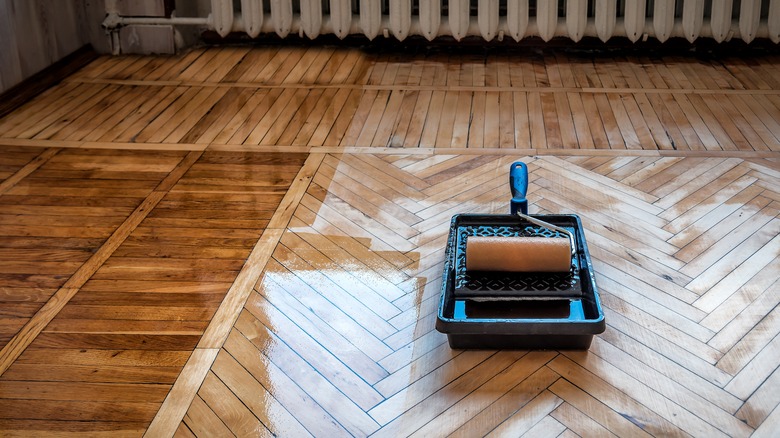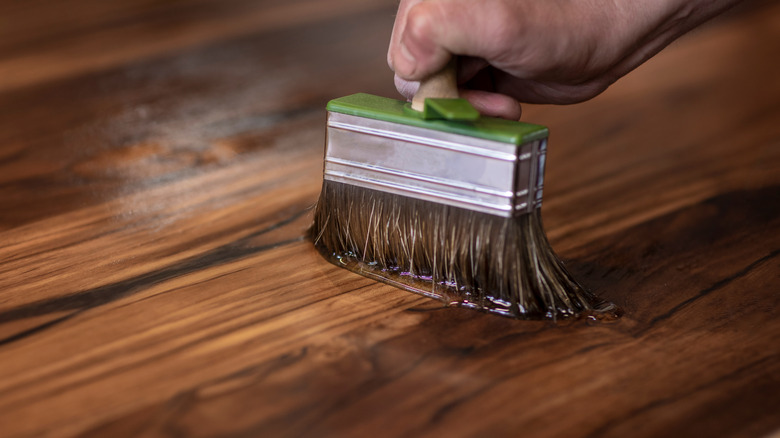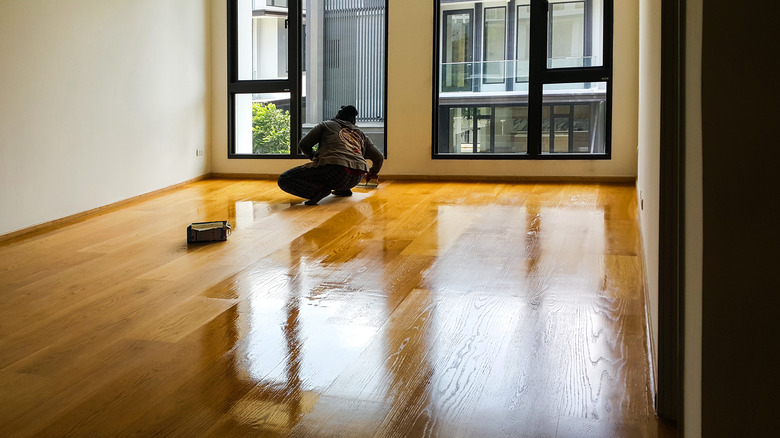Oil Vs. Urethane: Which Is The Best Finish For Your Hardwood Floors?
If you've recently installed new hardwood floors, you're probably exhausted. Renovations always seem to go on for too long and eventually decision fatigue starts to set in. One choice that seems especially frustrating? Whether you should choose an oil or urethane finish for your hardwood floors.
Although your floor's finish might seem like a trivial cosmetic concern, according to Monarch Plank it can actually have a drastic impact on your day-to-day routine, cleaning habits, and the floor's required maintenance. After all, you'll have to care for each type of finish differently, especially if you want that like-new look to last. While longevity might be the only factor on your mind right now — especially if you've had a particularly difficult renovation process — it's still important to consider other factors that might make one type of finish better for your situation than the other. Ultimately, you'll want to ensure that your floor's finish matches your lifestyle.
Oil finishes last for years — but require frequent maintenance
Although oil and urethane finishes have a few differences, the most important practicality to consider is maintenance. Oil finished floors last longer than their urethane counterparts, but they're much harder to clean. According to Bona, you'll need to frequently clean your floors to ensure that dirt or dust doesn't have a chance to accumulate, which could lead to scratched floors. Likewise, pets' claws, the dirt underneath your shoes, and children's toys can all wear down oil finished floors sooner. Essentially, anything that can scratch should be viewed with suspicion. As if that weren't enough, you'll also need special solutions to clean your floors since too much water can be harmful to the wood (via Wickham Hardwood).
With that being said, oil finished floors aren't all headaches. Do It Yourself explains that if the floor is scratched, it's a relatively easy process to touch up the coating. In other words, it will be a long time before you have to completely redo, potentially saving you work and money in the long run.
Urethane finishes are durable but difficult to repair
If an oil finish will get scuffed up too quickly or sounds too difficult to maintain, you might want to opt for a urethane finish. Per Grain Designs, you can forget the specialized cleaning solutions. To clean a floor with a urethane finish, you can simply use a damp cloth. While it's still best to avoid anything that might scratch the floor (such as high heels or toys with sharp corners), a urethane coating is much more durable than its oil counterpart and won't show nicks for a long time.
Unfortunately though, this durability is also the finish's eventual downfall. Once your urethane finish is damaged, it is extremely difficult to repair (via Garrison). Accumulate a few deep scratches and you may have to refinish the whole floor all over again — a tedious process that's sure to come sooner than it would if you used an oil finish. Ultimately, choosing between oil and urethane finishes might just boil down to the question of whether you'd prefer frequent, semi-involved maintenance and a long lifespan or simple maintenance with a shorter lifespan.


